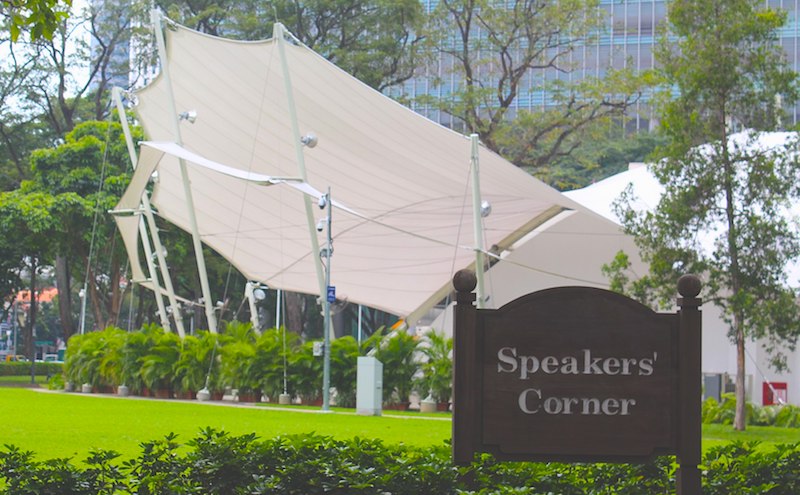Civil rights group Community Action Network (CAN) had planned to hold a protest of sorts at Hong Lim Park, ahead of the historic meeting between US President Trump and North Korean leader Kim Jong Un.
Perhaps unsurprisingly, their permit was denied by local authorities.
But CAN is not objecting to the US-North Korea summit, due to take place on June 12 at the luxurious Capella Hotel on the resort island of Sentosa. Rather, the group had wanted to raise awareness to the fact that the island off the country’s southern coast was the location where former political prisoner Dr. Chia Thye Poh was detained in house arrest without trial.
According to CAN, the group’s permit to hold the public assembly was rejected on grounds that it did not make an application 14 working days in advance.
Protests and permissions
For non-Singaporeans unfamiliar with how it works here, any protests, assemblies or rallies in Singapore require an approval by the authorities (weird, we know) and such activities can only be done at Hong Lim Park, a park located in the CBD. It’s the only venue in the country where public protests are allowed, and holding or participating in any demonstrations outside the park are considered chargeable offenses, punishable by jail and/or a fine. No matter how big or small the assembly is, it’s a crime to hold one without prior approval.
Dr. Chia Thye Poh

While international media remain obsessed about reporting about Sentosa’s pirate past, CAN believes that it’s ironic that the island is being used to hold peace talks despite being a location that hosted a controversial incarceration of a political prisoner.
Prior to Dr. Chia Thye Poh’s time in politics, he had been a university physics professor. The man had been a leading figure in Barisan Sosialis — Singapore’s biggest opposition party in the’60s and ‘80s formed by expelled left-wing members of the ruling People’s Action Party.
After holding boycotts and leading protest marches in 1966, Dr. Chia and 22 other Barisan Socialis leaders were arrested without trial, with the government accusing them of attempting to cause an upheaval that could destabilize Singapore. Refusing to sign a document that implied that he was a violent individual affiliated with the Communist Party of Malaya, Dr. Chia would be imprisoned for a total of 23 years.
This would be where Sentosa comes in. Following his release in 1989, he was banished to a one-room guardhouse on the island, and was even made to pay the rent and purchase his own food on the pretext that he was a “free” man. Even so, he was free to make comments and criticisms of the government and the general culture of Singapore’s politics.
It was only in 1992 that Dr. Chia was allowed to return to mainland Singapore, but with restrictions on his travel and activities. In 1998, he was finally free of all restrictions, and pursued a career in academia, studying in the Netherlands and Germany.
Last we heard, Singapore’s longest-held political prisoner was nominated for the prestigious Nobel Peace Prize in 2015.




